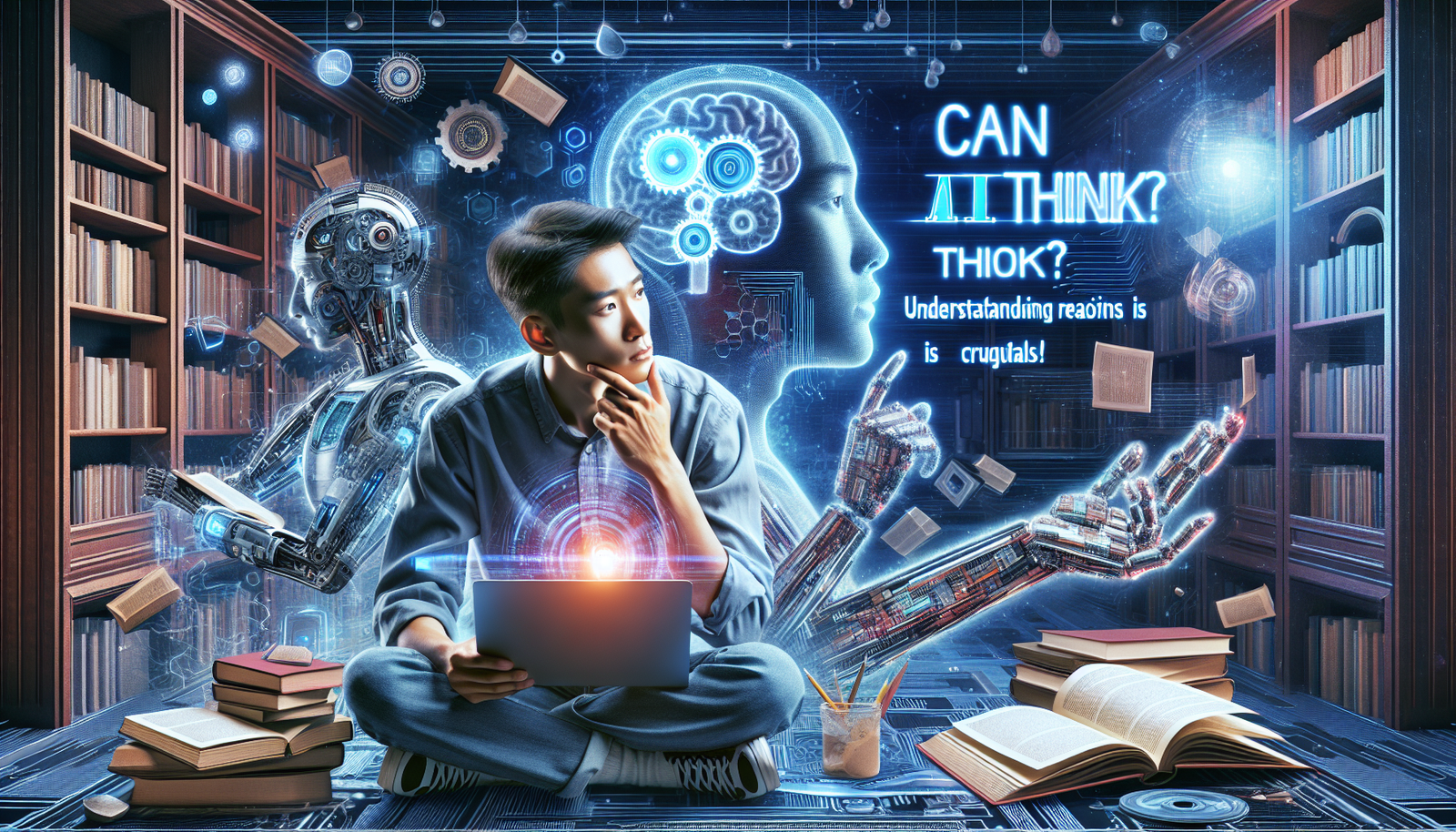Artificial intelligence transcends simple algorithms; it approaches a form of *autonomous* *thinking*, both captivating and concerning. This phenomenon sparks heated debates about its *cognitive abilities* and ethical implications. Understanding the *deep reasoning* of AI becomes a necessity to grasp its consequences on our modern societies. The technological and ethical stakes, often intertwined, raise the question of the future of artificial intelligence and its role.
Decoding Artificial Intelligence
Artificial intelligence (AI) raises profound questions about how it works and its potential. This technology allows for the imitation of certain aspects of human reasoning through sophisticated algorithms. At the intersection of computer science and cognition, AI demonstrates impressive learning capabilities, often compared to those of a human mind.
Reasoning in Artificial Intelligence
The reasoning of AI is based on complex mathematical models. These systems process enormous amounts of data to establish connections between various pieces of information. In this way, AI reproduces decision-making processes, generating an illusion of intelligence comparable to that of humans. However, this process should not be confused with genuine emotional or intuitive reasoning.
Concrete Applications of AI
The applications of artificial intelligence are multiplying across various fields. From healthcare, where algorithms assist doctors in diagnosis, to finance, where systems predict market fluctuations, the impact of AI is undeniable. AI models knowledge to improve decision-making. For example, chatbots and artificial intelligence assistants, like Leo from Brave, enhance user experience while respecting privacy.
Leading companies, such as tech giants, are heavily investing in research and development of AI solutions. Elon Musk’s Grok model fits into this dynamic. This innovative system combines humor and real-time knowledge, making interactions more human-like.
Issues Related to Artificial Intelligence
Nevertheless, the challenges of AI are not limited to its possibilities. The question of responsibility for decisions made by automated systems emerges as a paramount concern. Prediction errors can have significant consequences, as indicated by recent analyses on the limits of algorithms. From facial recognition to behavioral analysis, AI can sometimes make heavy mistakes, leading to repercussions for individuals. Systems must therefore be rigorously tested and validated to ensure their reliability.
Risks Associated with the Use of AI
The inherent dangers of AI should not be overlooked. Irresponsible use can lead to privacy violations, systemic biases, and a concentration of power. Discussions around the GDPR highlight the need for a balance between innovation and data protection. Safeguards must be in place to prevent abuses, especially in a constantly evolving technological environment.
The Future of Artificial Intelligence
At the dawn of new innovations, the question of surpassing it through human intelligence remains a subject of debate. While some advancements seem to indicate progress towards more autonomous systems, the understanding and regulation of these technologies will determine their societal impact. Attacks on data security standards, along with ethical challenges, require heightened vigilance from stakeholders.
The implications of artificial intelligence, both positive and negative, must be examined through a critical lens. Inevitable advancements must be accompanied by deep reflection on the meaning of our relationship with this constructed intelligence.
Frequently Asked Questions about Artificial Intelligence and Its Reasoning
What are the reasoning capabilities of artificial intelligence?
Artificial intelligence can replicate certain aspects of human reasoning by using algorithms to analyze data, make predictions, and make decisions based on patterns. However, this capability is limited to the logical structures programmed by developers.
How does artificial intelligence make decisions?
Artificial intelligence makes decisions by evaluating large amounts of data and identifying patterns or trends. Through algorithms, it can simulate a thinking process, but this is not thinking in the human sense.
What types of reasoning can be applied within the framework of artificial intelligence?
There are several types of reasoning in AI, including deductive, inductive, and abductive reasoning, each having its applications depending on the context and AI’s goals.
Can artificial intelligence surpass human intelligence in reasoning?
Currently, artificial intelligence excels at specific tasks and can surpass humans in certain areas, such as processing massive data. However, it cannot match the nuanced understanding and creativity of humans.
What challenges need to be addressed to improve the reasoning of artificial intelligence?
Major challenges include managing biases in data, the interpretability of models, and the ability to handle uncertainty. AI must also learn to reason in varied and complex contexts.
How does artificial intelligence understand human language?
AI uses natural language processing (NLP) techniques to analyze, interpret, and generate text. These techniques rely on mathematical models that attempt to understand the structures and meanings of words in context.
What is the relationship between emotional intelligence and artificial intelligence?
Artificial intelligence does not possess emotional intelligence. Although it can simulate emotional responses and analyze human expressions, this does not mean it experiences emotions like a human being.
How do algorithms influence the reasoning of artificial intelligence?
Algorithms are at the heart of AI’s functioning; they define how it processes information and makes decisions. The quality and structure of these algorithms largely determine its reasoning effectiveness.
Can artificial intelligence learn from its reasoning errors?
Yes, through techniques like supervised and unsupervised learning, AI can improve its performance by learning from past mistakes and adjusting its models accordingly.






